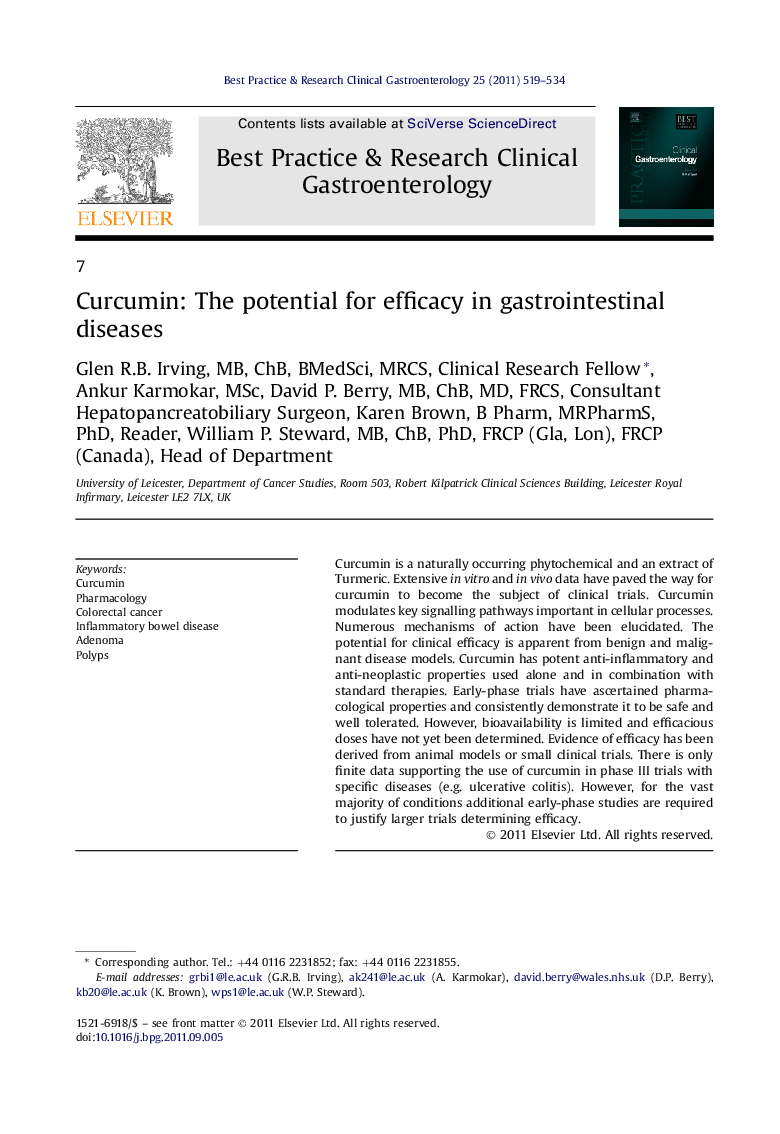| Article ID | Journal | Published Year | Pages | File Type |
|---|---|---|---|---|
| 3254216 | Best Practice & Research Clinical Gastroenterology | 2011 | 16 Pages |
Curcumin is a naturally occurring phytochemical and an extract of Turmeric. Extensive in vitro and in vivo data have paved the way for curcumin to become the subject of clinical trials. Curcumin modulates key signalling pathways important in cellular processes. Numerous mechanisms of action have been elucidated. The potential for clinical efficacy is apparent from benign and malignant disease models. Curcumin has potent anti-inflammatory and anti-neoplastic properties used alone and in combination with standard therapies. Early-phase trials have ascertained pharmacological properties and consistently demonstrate it to be safe and well tolerated. However, bioavailability is limited and efficacious doses have not yet been determined. Evidence of efficacy has been derived from animal models or small clinical trials. There is only finite data supporting the use of curcumin in phase III trials with specific diseases (e.g. ulcerative colitis). However, for the vast majority of conditions additional early-phase studies are required to justify larger trials determining efficacy.
